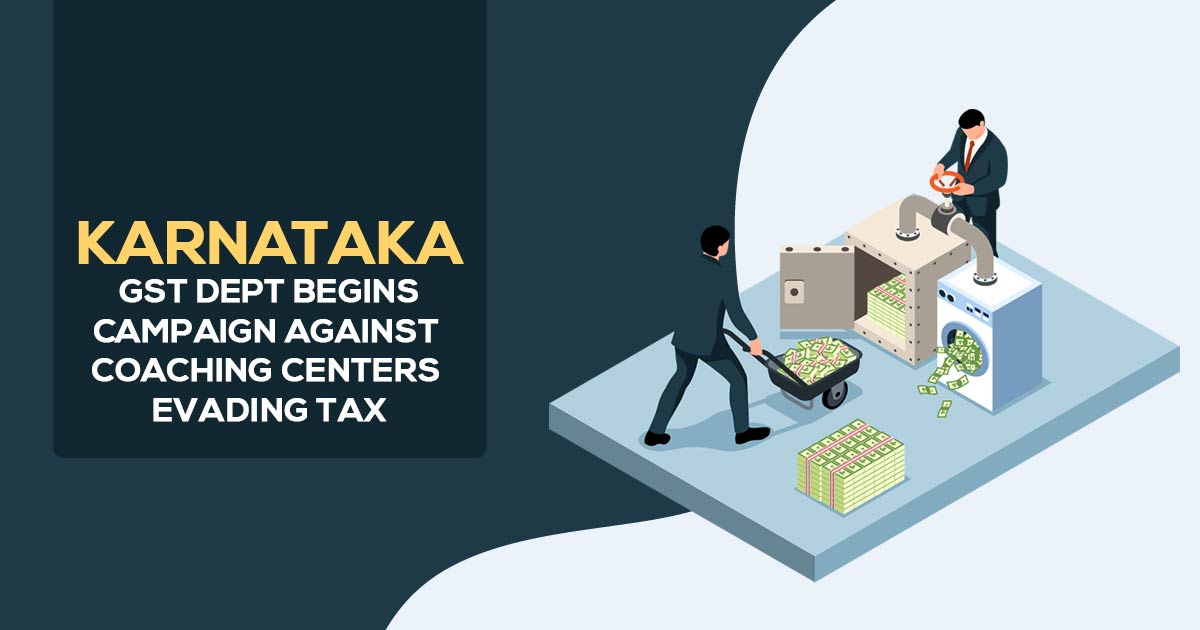
In a recent finding conducted by the Belagavi Enforcement Wing of the Commercial Taxes Department in Karnataka, a prominent group has been exposed which was operating multiple coaching institutes in Vijayapura district. The authority has imposed charges of evading Goods and Services Tax (GST).
Further searches have also been done in other commercial coaching facilities within the district regarding the same concern. The search operation was carried out by enforcement officials at both the business and residential premises of the group’s coaching institutes as well.
Important: GST Rate Applicable to Educational & Training Services
During these search operations, officers nabbed disfiguring records and digital evidence. The search suggests that a substantial portion of their turnover may have been concealed, leading to potential tax evasion. The group intentionally deposited ₹1 crore in GST while awaiting the final quantification of turnover and tax, C. Shikha, Commissioner of Commercial Taxes (Karnataka) conveyed the information during a press statement issued on Thursday.
The group’s name has not been disclosed by the department. It’s important to note that coaching institutions are subject to paying an 18% GST rate. The department is actively working to include all such institutes within the GST framework, as stated by Ms Shikha.
Furthermore, the department is leading the way in e-governance, utilizing sophisticated software analytics to identify instances of fraud and tax evasion.
Last week, commercial tax officers were given instructions by Chief Minister Siddaramaiah to take strict action against tax evaders in cases of GST tax evasion, tax leakage, and tax pilferage within the state. He highlighted that the state’s commercial tax department achieved a growth rate of 19.2%, surpassing the national average of 15%.
Read Also: GST Evasion Operation on Insurers May Complete by Nov 2023
The government has set an ambitious target of 24% growth in tax collection. Chief Minister Siddaramaiah emphasized that officers should not rest content but should actively explore opportunities for intensive enforcement to achieve the collection target in the next fiscal year.









